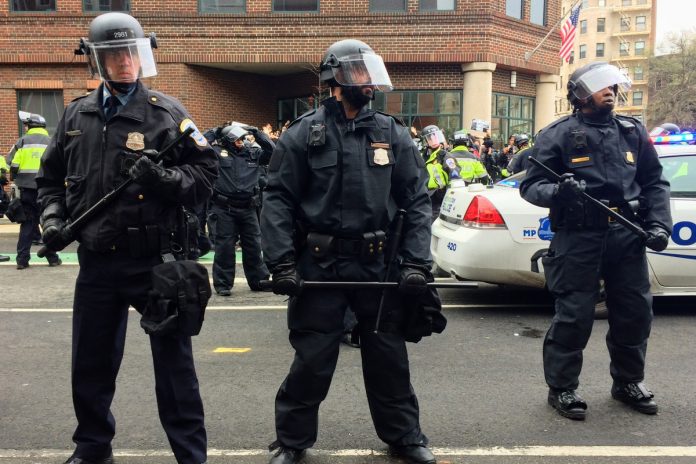Cannabis law and the way in which the industry functions offers insight into the larger dialogue on race and law enforcement we seem to be veering toward as a nation. Cannabis culture, and now the industry, has largely been molded by law enforcement, despite many fans of the plant feeling their actions are driven by anything but established agents of the legal system. Law enforcement has created a culture of discretion among cannabis users. Even still, with legalization, many still seem wary about consuming around others or being fully transparent about their use. This seems directly linked to a culture of fear perpetuated by government agencies for the better part of a century.
The industry, like its consumers, also is greatly shaped by law enforcement’s heavy presence. At times, it has had to strike deals with law enforcement to either survive or to expand. As Chris Roberts of Forbes points out, “without paying off the cops, California might not have legalized recreational cannabis.” Those who drafted the language included in Proposition 64, the Adult Use of Marijuana Act, felt they needed to sweeten the pot for law enforcement—and portions of the public—to remove itself as a major obstacle toward the implementation of legalized recreational cannabis use. Twenty percent of tax revenue generated by California’s adult-use sales are diverted toward “public safety.” The concession may not have been enough to stop law enforcement from voicing opposition to Prop. 64, but it may have been enough to stop their lobbyists from engaging in a full-blown campaign against it.
As law enforcement’s ability to provide fair justice and protection to African Americans comes under scrutiny, the cannabis industry seems to be asking the same questions about its role in cannabis, especially as police seem to target a very specific portion of the cannabis ecosystem—people from communities of color. An organization known as Public Health Advocates is promoting the findings of two new studies from the UC Davis Center for Regional Change and Youth Forward that call for California to divert money from police department’s cannabis enforcement budget and direct it toward investing in minority communities.
According to one of the reports cited by Public Health Advocates “three years after (California voters legalized marijuana), elected officials have made decisions that are failing to meet these expectations and to reverse the course of the war on drugs,” the Sacramento Bee reported.
State lawmakers currently are mulling over a request from California’s Bureau of Cannabis Control to set aside funds to create a new police force specifically tasked with cannabis enforcement. The new department would target unlicensed shops or illegal sales but critics fear the task force would employ old tactics and communities of color would feel the brunt of its enforcement efforts.
“The entity that was responsible for the racist implementation of the criminalization laws … is now also getting the windfall of the money that is being generated from legalization,” said Flojaune Cofer, a representative for Public Health Advocates.
California is not the only state where calls are increasing to defund police efforts in targeting cannabis. Portland, Oregon, Mayor Ted Wheeler recently pledged to reallocate $12 million currently going to law enforcement to now be applied to communities of color.
Wheeler, who also serves as the city’s police commissioner, has fielded calls for this type of action for years but hesitated to take action.
“My privilege as a white man, my privilege as the mayor and the leader of the institutions of power in this community I believe shielded me from time to time from the many difficult and uncomfortable truths about our history and about our society,” Wheeler said.
Wheeler also announced plans to make the Portland Committee on Community-Engaged Policing a permanent entity and to subject police officers guilty of intentional discrimination to formal punishment.
The war on drugs has long been a disruptor of communities of color and has yielded little besides a colossal waste of taxpayer dollars and increased distrust between law enforcement and residents, especially those from communities of color.
The cannabis industry, which desperately needs diversity, both in terms of its membership and in thought, might be poised to push back on law enforcement’s harsh tactics…if we find a way to become more inclusive and to draw from the insights of those most impacted by the failures of law enforcement.












